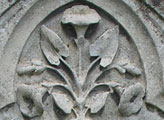William Fiddian Moulton 1835–1898
In the early 1800s, Cow Leys Fen was open grazing land looking much like the other areas around Fen Causeway do today. The enclosure act of 1811 enabled a substantial area to be sold and with the erection of a house this became ‘The Leys Estate’. In the 1870s the estate was bought by Mr Robert Sayle [another name familiar to older local readers!], with the intention that it should become a Methodist educational establishment of some kind.
It was only in the 1870s that Nonconformists could begin to hold public and university office, so the Methodist Conference was considering the establishment of a school for the children of lay members of the church, for whom much wider opportunities then existed. This need, together with the opportune availability of the site in Cambridge, led to the decision to establish ‘The Leys School’. The Reverend Doctor William Fiddian Moulton, a distinguished scholar and leader of the Methodist Movement, was appointed as the first Headmaster.
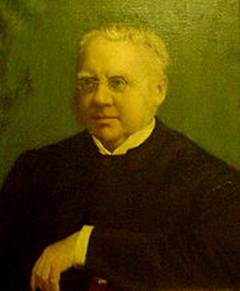
Rev William Fiddian Moulton
Portrait in the Moulton
Chapel, Leys School
William inherited his commitment to Methodism from his father (also buried in Histon Road Cemetery) and grandfather, who had both devoted themselves to the work of the Movement. Born in Leek, Staffs he was a delicate child, ‘hardly expected to reach manhood’. Nevertheless he survived the Spartan rigours of school and outbreaks of typhus and cholera to emerge as an accomplished scholar. In 1850 he went to The Wesley College, Sheffield where he obtained a BA and MA with a gold medal for mathematics. Leaving college, he taught mathematics and began to preach, walking many miles from one congregation to another on Sundays.
Rejecting the idea of careers elsewhere, he resumed his study of Hebrew, Greek and Biblical Questions. He excelled in these areas and was accepted at Richmond College, the leading Methodist theological institution, to prepare for ordination. Most of those attending the College became circuit preachers or missionaries. William’s academic prowess was such that, once ordained in 1862, he immediately became classical tutor and remained there for a further 12 years. He became the foremost expert on classical and New Testament Greek and was closely involved with other Anglican and Nonconformist scholars in the revision of the authorised version of the New Testament. In addition to his teaching and work in the governance of the Movement, he published many religious writings.
At the Methodist Conference 1871, he was on the committee considering the education of children of lay members. Little did he expect that in 1874 he would be asked to become the founding Headmaster of the new Cambridge school. Undaunted, he approached the task with characteristic modesty, energy and determination. He was able to forge close ties with the University whilst being an accessible and sympathetic teacher responding to the individual needs and talents of his pupils. His personal influence played a great part in the successful establishment of the Leys School.
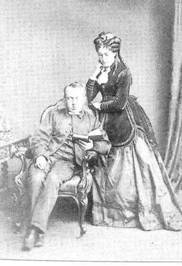
He married after his ordination, and his wife Hannah supported him in his work at Richmond College and then at the Leys, giving many hours each day to correspondence and administrative matters. Both their children attended the School, went on to be ordained and returned to teach there.
He worked exceedingly hard, continuing with his religious writing, serving on many committees such as the board of Managers of the new Perse School for Girls and as Treasurer of the Central China Lay Mission. In 1890 he was president of the Methodist Conference and in 1892 he attended the General Conference of American Methodism in Omaha, Nebraska, a significant undertaking at that time.
On a cold February day in 1898 William died suddenly whilst walking back across the fen from Newnham, where he had visited a sick colleague. After the funeral in the school hall, a long procession made its way to Histon Road Cemetery. Members of the school, the Mayor and Corporation from the town, representatives from the Methodist Movement, leading members of the University and many friends testified to the respect in which he was held.
The grave with collapsed headstone which may soon become illegible contrasts with the fine marble bust and memorial with its Greek inscription that is prominent in Wesley’s Chapel, City Road, London.
[Since writing this piece in 2009 the headstone has been repaired and fixed upright.]
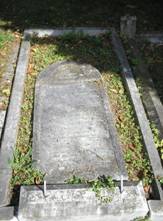
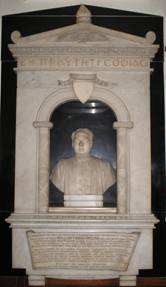
William Fiddian Moulton – A Memoir: WF Moulton (Jnr) Pub. Isbister & Co 1899. Wikipedia WF Moulton. Well-regulated minds and improper moments (A History of the Leys School) G &P Houghton Pub. The Governers of the Leys School 2000. John Harding Archivist Leys School. The Wesley Chapel City Road London.
